



Now while Paul waited for them at Athens, his spirit was provoked within him when he saw that the city was given over to idols. Therefore he reasoned in the synagogue with the Jews and with the Gentile worshipers, and in the marketplace daily with those who happened to be there.
Then certain Epicurean and Stoic philosophers encountered him. And some said, “What does this babbler want to say?” Others said, “He seems to be a proclaimer of foreign gods,” because he preached to them Jesus and the resurrection. And they took him and brought him to the Areopagus, saying, “May we know what this new doctrine is of which you speak?“For you are bringing some strange things to our ears. Therefore we want to know what these things mean.” For all the Athenians and the foreigners who were there spent their time in nothing else but either to tell or to hear some new thing. Then Paul stood in the midst of the Areopagus and said, “Men of Athens, I perceive that in all things you are very religious; “for as I was passing through and considering the objects of your worship, I even found an altar with this inscription:
TO THE UNKNOWN GOD.
Therefore, the One whom you worship without knowing, Him I proclaim to you:
“God, who made the world and everything in it, since He is Lord of heaven and earth, does not dwell in temples made with hands. “Nor is He worshiped with men’s hands, as though He needed anything, since He gives to all life, breath, and all things. “And He has made from one man (Adam) every nation of men to dwell on all the face of the earth, and has determined their preappointed times and the boundaries of their dwellings, “so that they should seek the Lord, in the hope that they might grope for Him and find Him, though He is not far from each one of us; “for in Him we live and move and have our being, as also some of your own poets have said, ‘For we are also His offspring.’ “Therefore, since we are the offspring of God, we ought not to think that the Divine Nature is like gold or silver or stone, something shaped by art and man’s devising.
“Truly, these times of ignorance God overlooked, but now commands all men everywhere to repent, “because He has appointed a day on which He will judge the world in righteousness by the Man whom He has ordained. He has given assurance of this to all by raising Him from the dead.”
And when they heard of the resurrection of the dead, some mocked, while others said, “We will hear you again on this matter.”
So Paul departed from among them. (Acts 17:16-32)
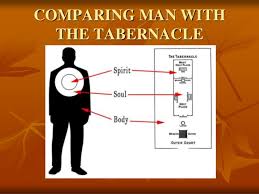 "Now, therefore, you are no longer strangers and foreigners, but fellow citizens with the saints and members of the household of God, having been built on the foundation of the apostles and prophets, Jesus Christ Himself being the chief cornerstone, in whom the whole building, being fitted together, grows into a holy temple in the Lord, in whom you also are being built together for a dwelling place of God in the Spirit."
"Now, therefore, you are no longer strangers and foreigners, but fellow citizens with the saints and members of the household of God, having been built on the foundation of the apostles and prophets, Jesus Christ Himself being the chief cornerstone, in whom the whole building, being fitted together, grows into a holy temple in the Lord, in whom you also are being built together for a dwelling place of God in the Spirit."
In daily life we all know about "House Rules" such as, Rules of Order
Robert’s Rules of Order, Courtroom Protocols,
Hospital Protocols,
Triage,
Rescue Operations,
Law Enforcement,
Fraternity Life,
Sorority Life,
Campus Life,
House Mothers,,
Recovery House Rules, Halfway Houses,
The Army,
The Navy,
The Marines,
Special Forces,
Jail,
Solitary Confinement,
Death Row,
Parental Discipline,
Redeeming a Slave ,
Tartarus,
Hades,
Parole Rules, Probation,
Mom and Dad’s House,
Restaurants,
Homeless Protocols,
Insane Asylums,
Orphanages
Hospice Centers,
Museums,
Theaters,
Schools,
Air Liners,
Road Rules,
Angels Dominions,
Discipline
The Management of Hell,
Cathedrals, Mosques and Synagogues.
We also understand, do we not, key words about shelters from the cradle to the grave: The Womb, The Nursery, Tents, Shacks, Cabins, Motels, Hotels, The Tomb, Sanctuary. The Safe House, The Half Way House, Sheol, Nirvana, Purgatory, Limbo, Paradise, Elysium Pastures, Safe Haven, Infirmary, Sanitarium.
Does God Need a Temple? No, not really! The universe is quite complete without us! But as there are levels of heaven to welcome weary pilgrims following Jesus home, so there is a place preferred for all those who prefer living alone forever, no matter what.
From C.S. Lewis, the Great Divorce, on "the gray town." Audio Edition --- PDF version 1945.
"It was just then that we were interrupted. One of the quarrels which were perpetually simmering in the bus had boiled over and for a moment there was a stampede. Knives were drawn: pistols were fired: but it all seemed strangely innocuous and when it was over I found myself unharmed, though in a different seat and with a new companion. He was an intelligent-looking man with a rather bulbous nose and a bowler hat. I looked out of the windows. We were now so high that all below us had become featureless. But fields, rivers, or mountains I did not see, and I got the impression that the gray town still filled the whole field of vision.
‘It seems the deuce of a town’, I volunteered, ‘and that’s what I can’t understand. The parts of it that I saw were so empty. Was there once a much larger population?’
‘Not at all’, said my neighbour. ‘The trouble is that they’re so quarrelsome. As soon as anyone arrives he settles in some street. Before he’s been there twenty-four hours he quarrels with his neighbour. Before the week is over he’s quarreled so badly that he decides to move. Very likely he finds the next street empty because all the people there have quarreled with their neighbours—and moved. If so he settles in. If by any chance the street is full, he goes further. But even if he stays, it makes no odds. He’s sure to have another quarrel pretty soon and then he’ll move on again. Finally he’ll move right out to the edge of the town and build a new house. You see, it’s easy here. You’ve only got to think a house and there it is. That’s how the town keeps on growing.’
‘Leaving more and more empty streets?’
‘That’s right. And time’s sort of odd here. That place where we caught the bus is thousands of miles from the Civic Centre where all the newcomers arrive from earth. All the people you’ve met were living near the bus stop: but they’d taken centuries—of our time—to get there, by gradual removals.’
‘And what about the earlier arrivals? I mean—there must be people who came from earth to your town even longer ago.’
‘That’s right. There are. They’ve been moving on and on. Getting further apart. They’re so far off by now that they could never think of coming to the bus stop at all. Astronomical distances. There’s a bit of rising ground near where I live and a chap has a telescope. You can see the lights of the inhabited houses, where those old ones live, millions of miles away. Millions of miles from us and from one another. Every now and then they move further still. That’s one of the disappointments. I thought you’d meet interesting historical characters. But you don’t: they’re too far away.’
‘Would they get to the bus stop in time, if they ever set out?’
‘Well—theoretically. But it’d be a distance of light-years. And they wouldn’t want to by now: not those old chaps like Tamberlaine and Genghiz Khan, or Julius Caesar, or Henry the Fifth.’
‘Wouldn’t want to?’
‘That’s right. The nearest of those old ones is Napoleon. We know that because two chaps made the journey to see him. They’d started long before I came, of course, but I was there when they came back. About fifteen thousand years of our time it took them. We’ve picked out the house by now. Just a little pin prick of light and nothing else near it for millions of miles.’
‘But they got there?’
‘That’s right. He’d built himself a huge house all in the Empire style—rows of windows flaming with light, though it only shows as a pin prick from where I live.’
‘Did they see Napoleon?’
‘That’s right. They went up and looked through one of the windows. Napoleon was there all right.’
‘What was he doing?’
‘Walking up and down—up and down all the time—left-right, left-right—never stopping for a moment. The two chaps watched him for about a year and he never rested. And muttering to himself all the time. “It was Soult’s fault. It was Ney’s fault. It was Josephine’s fault. It was the fault of the Russians: It was the fault of the English.” Like that all the time. Never stopped for a moment. A little, fat man and he looked kind of tired. But he didn’t seem able to stop it.’
From the vibrations I gathered that the bus was still moving, but there was now nothing to be seen from the windows which confirmed this—nothing but grey void above and below.
‘Then the town will go on spreading indefinitely?’ I said.
‘That’s right,’ said the Intelligent Man. ‘Unless someone can do something about it.’
‘How do you mean?’
‘Well, as a matter of fact, between you and me and the wall, that’s my job at the moment. What’s the trouble about this place? Not that people are quarrelsome—that’s only human nature and was always the same even on earth. The trouble is they have no Needs. You get everything you want (not very good quality, of course) by just imagining it. That’s why it never costs any trouble to move to another street or build another house. In other words, there’s no proper economic basis for any community life. If they needed real shops, chaps would have to stay near where the real shops were. If they needed real houses they’d have to stay near where builders were. It’s scarcity that enables a society to exist. Well, that’s where I come in. I’m not going this trip for my health. As far as that goes I don’t think it would suit me up there. But if I can come back with some real commodities—anything at all that you could really bite or drink or sit on—why, at once you’d get a demand down in our town. I’d start a little business. I’d have something to sell. You’d soon get people coming to live near—centralisation. Two fully-inhabited streets would accommodate the people that are now spread over a million square miles of empty streets. I’d make a nice little profit and be a public benefactor as well.’
‘You mean, if they had to live together they’d gradually learn to quarrel less?’
‘Well, I don’t know about that. I daresay they could be kept a bit quieter. You’d have a chance to build up a police force. Knock some kind of discipline into them. Anyway’ (here he dropped his voice) ‘it’d be better, you know. Everyone admits that. Safety in numbers.’
‘Safety from what?’, I began, but my companion nudged me to be silent. I changed my question.
‘But look here’, said I, ‘if they can get everything just by imagining it, why would they want any real things, as you call them?’
‘Eh? Oh well, they’d like houses that really kept out the rain.’
‘Their present houses, don’t?’
‘Well of course not. How could they?’
‘What the devil is the use of building them, then?’ The Intelligent Man put his head closer to mine. ‘Safety again,’ he muttered. ‘At least, the feeling of safety. It’s all right now: but later on . . . you understand.’
‘What?’ said I, almost involuntarily sinking my own voice to a whisper.
He articulated noiselessly as if expecting that I understood lip-reading. I put my ear close to his mouth. ‘Speak up,’ I said. ‘It will be dark presently,’ he mouthed.
‘You mean the evening is really going to turn into a night in the end?’
He nodded.
Jesus spoke about hell, giving us this account in the form of a parable. It may well have been a true story.
"There was a rich man, who was clothed in purple and fine linen and who feasted sumptuously every day. And at his gate lay a poor man named Lazarus, full of sores, who desired to be fed with what fell from the rich man's table; moreover the dogs came and licked his sores. The poor man died and was carried by the angels to Abraham's bosom.
The rich man also died and was buried; and in Hades, being in torment, he lifted up his eyes, and saw Abraham far off and Lazarus in his bosom. And he called out, 'Father Abraham, have mercy upon me, and send Lazarus to dip the end of his finger in water and cool my tongue; for I am in anguish in this flame.' But Abraham said, 'Son, remember that you in your lifetime received your good things, and Lazarus in like manner evil things; but now he is comforted here, and you are in anguish. And besides all this, between us and you a great chasm has been fixed, in order that those who would pass from here to you may not be able, and none may cross from there to us.'
And he said, 'Then I beg you, father, to send him to my father's house, for I have five brothers, so that he may warn them, lest they also come into this place of torment.' But Abraham said, 'They have Moses and the prophets; let them hear them.' And he said, 'No, father Abraham; but if some one goes to them from the dead, they will repent.' He said to him, 'If they do not hear Moses and the prophets, neither will they be convinced if some one should rise from the dead'." (Luke 16:19-31)

We are welcome to stay if we know the Landlord!
For if we are beside ourselves, it is for God; or if we are of sound mind, it is for you. For the love of Christ compels us, because we judge thus: that if One died for all, then all died; and He died for all, that those who live should live no longer for themselves, but for Him who died for them and rose again. Therefore, from now on, we regard no one according to the flesh. Even though we have known Christ according to the flesh, yet now we know Him thus no longer. Therefore, if anyone is in Christ, he is a new creation; old things have passed away; behold, all things have become new. Now all things are of God, who has reconciled us to Himself through Jesus Christ, and has given us the ministry of reconciliation, Now then, we are ambassadors for Christ, as though God were pleading through us: we implore you on Christ’s behalf, be reconciled to God. For He made Him who knew no sin to be sin for us, that we might become the righteousness of God in Him. (2 Corinthians 5:14-21)
PSALMS 19The Perfect Revelation of the Lord.
To the Chief Musician.
|
![]()

Building a HouseThe universe is AnthropicIf the universe is "God's house" as Scripture suggests, then creation week can perhaps be better understood by looking at how men build houses. One first selects a location for one's house. The plot of land is purchased and secured. The land is cleared. The architect draws up the plans. Contractors arrive and first the foundations are laid. Raw materials are brought to the job site (sand, concrete, lumber, nails, shingles, windows, bricks). Upon the foundation one builds the frame of the house, which at first resembles a shell. It is not at this time inhabitable, but the original formless materials have at least been given form and shape according to the architect's design. When the structural framework of the house is completed siding and shingles are added to the outside and interior walls, partitions, doors, floors and utilities are put into place. The second stage of the building of the house is exterior landscaping and interior equipping and furnishing: carpets, drapes, appliances and furniture. Broadly speaking the first stage of construction is "forming" and the second stage is "filling". These two stages answer the original condition at the end of the First day of creation week when the universe was "tohu wa-bohu"-- unformed and unfilled. Human habitations consist of structures--which are assembled--plus an eco-system and an environment. When both have been integrated together and completed, one has a complete house. The house can then be lived in and enjoyed.
|
New Testament Words for "house" |
A — 1: οἶκος
|
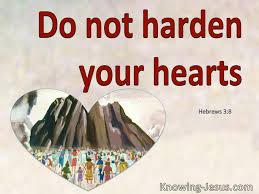 Therefore, holy brethren, partakers of the heavenly calling, consider the Apostle and High Priest of our confession, Christ Jesus, who was faithful to Him who appointed Him, as Moses also was faithful in all His house.
For this One has been counted worthy of more glory than Moses, inasmuch as He who built the house has more honor than the house. For every house is built by someone, but He who built all things is God. And Moses indeed was faithful in all His house as a servant, for a testimony of those things which would be spoken afterward, but Christ as a Son over His own house, whose house we are if we hold fast the confidence and the rejoicing of the hope firm to the end.
Therefore, as the Holy Spirit says:
Therefore, holy brethren, partakers of the heavenly calling, consider the Apostle and High Priest of our confession, Christ Jesus, who was faithful to Him who appointed Him, as Moses also was faithful in all His house.
For this One has been counted worthy of more glory than Moses, inasmuch as He who built the house has more honor than the house. For every house is built by someone, but He who built all things is God. And Moses indeed was faithful in all His house as a servant, for a testimony of those things which would be spoken afterward, but Christ as a Son over His own house, whose house we are if we hold fast the confidence and the rejoicing of the hope firm to the end.
Therefore, as the Holy Spirit says:
“Today, if you will hear His voice, Do not harden your hearts as in the rebellion,
In the day of trial in the wilderness, Where your fathers tested Me, tried Me,
And saw My works forty years. Therefore I was angry with that generation,
And said, ‘They always go astray in their heart,
And they have not known My ways.’
So I swore in My wrath,
‘They shall not enter My rest.’
Beware, brethren, lest there be in any of you an evil heart of unbelief in departing from the living God; but exhort one another daily, while it is called “Today,” lest any of you be hardened through the deceitfulness of sin. For we have become partakers of Christ if we hold the beginning of our confidence steadfast to the end, while it is said:
“Today, if you will hear His voice,
Do not harden your hearts as in the rebellion.
In the day of trial in the wilderness,
Where your fathers tested Me, tried Me,
And saw My works forty years.
Therefore I was angry with that generation,
And said, ‘They always go astray in their heart,
And they have not known My ways.’
So I swore in My wrath,
‘They shall not enter My rest.’ ”
Beware, brethren, lest there be in any of you an evil heart of unbelief in departing from the living God; but exhort one another daily, while it is called “Today,” lest any of you be hardened through the deceitfulness of sin. For we have become partakers of Christ if we hold the beginning of our confidence steadfast to the end, while it is said:
“Today, if you will hear His voice,
Do not harden your hearts as in the rebellion.” (Hebrews 3:1-15)
Old Body/New Body |
|
“For our citizenship (politeuma) is in heaven, from which we also eagerly wait for the Savior, the Lord Jesus Christ, who will transform (metaschēmatizō) our lowly body (tapeinōsis) that it may be conformed (sunmorphos) to His glorious body, according to the working (energeia) by which He is able even to subdue all things to Himself.” (Philippians 3:20-21) “For we know that if our earthly house, (epigeios oikia), this tent (skenos), is destroyed, (katalyō) we (now) have a building (oikodomē) from God, a house (oikia) not made with hands, (acheiropoiētos), eternal in the heavens. For in this (oikia) we groan, earnestly desiring to be clothed with our habitation which is from heaven, if indeed, having been clothed, we shall not be found naked. For we who are in this tent groan, being burdened, not because we want to be unclothed, but further clothed, that mortality may be swallowed up by life. Now He who has prepared us for this very thing is God, who also has given us the Spirit as a guarantee. So we are always confident, knowing that while we are at home in the body we are absent from the Lord. For we walk by faith, not by sight.” (2 Corinthians 5:1-7) My present body is adjusted and calibrated to last me 70-90 years (Psalm 90). Apparently God can not trust us with more than a century of life on His good earth? This number (70-90 years) is down from the ~900 years people lived before the Flood. We can anticipate moving into our on-order new body starting now! We are actually enabled today to live now “in the heavenly places in Christ Jesus” as if we were already wearing our new bodies today. This is evident by looking at the verse tenses in the New Testament passages that describe what actually happens when anyone of us allows Jesus into his life as Lord! |
Hebrews Chapter 12 |
Therefore we also, since we are surrounded by so great a cloud of witnesses, let us lay aside every weight, and the sin which so easily ensnares us, and let us run with endurance the race that is set before us, looking unto Jesus, the author and finisher of our faith, who for the joy that was set before Him endured the cross, despising the shame, and has sat down at the right hand of the throne of God.
The Discipline of God
For consider Him who endured such hostility from sinners against Himself, lest you become weary and discouraged in your souls. You have not yet resisted to bloodshed, striving against sin. And you have forgotten the exhortation which speaks to you as to sons: See that you do not refuse Him who speaks. For if they did not escape who refused Him who spoke on earth, much more shall we not escape if we turn away from Him who speaks from heaven, whose voice then shook the earth; but now He has promised, saying, “Yet once more I shake not only the earth, but also heaven.” Now this, “Yet once more,” indicates the removal of those things that are being shaken, as of things that are made, that the things which cannot be shaken may remain. Therefore, since we are receiving a kingdom which cannot be shaken, let us have grace, by which we may serve God acceptably with reverence and godly fear. For our God is a consuming fire. 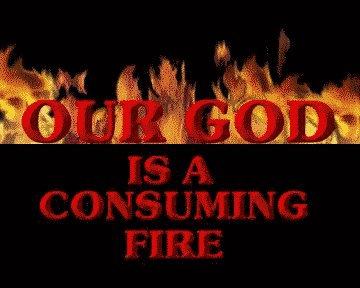
|
The glory of the light is brightest,
When the glory of self is dim,
And they have most compelled me,
Who most have pointed to Him;
They have held me, stirred me, swayed me---
I have hung on their every word,
'Til I fain would rise and follow,
Not them, not them, but their Lord.
Why look away from human leaders to Jesus? Because he is the author and perfecter of our faith. He gives it and completes it. The word translated here "author" is archegos, which we saw in 2:10 has the thought of pioneer or leader. Jesus has gone before us in this race to keep faith. He knows the need for it. He himself ran the race. He laid aside every weight, every tie of family and friends. He set his face against the popular sin of unbelief and daily lived in patient perseverance, trusting his Father to work everything out for him. He set the perfect example. As Bruce says, "It was sheer faith in God, unsupported by any visible evidence, that carried Him through the taunting, the scourging, the crucifying, and the more bitter agony of rejection, desertion and dereliction" (1964:352).
But there is more than example in him---there is also empowerment! Moment by moment, day by day, week by week year by year, as we look to him, we shall find strength imparted to us. He is not "out there" somewhere. As this epistle has made clear, he is within us, by faith. He has entered into the sanctuary, into the inner person, into the very place where we need strength and grace, and is available every moment to help us in time of need. Having himself lived by faith, he is able to impart that faith to others. He does this by means of the Spirit, as Paul reflects in his prayer of Ephesians 3:16: "I pray that out of his glorious riches he may strengthen you with power through his Spirit in your inner being." This power to awaken faith is what Jesus describes as the enabling of the Father ("no one can come to me unless the Father has enabled him"---John 6:65). As the epistle to the Hebrews has repeatedly insisted, faith is essential to spiritual vitality. Jesus is our example of the kind of faith required, but his very life in us imparts the faith we need to run the race of life successfully. So we cry with Paul, "I can do everything through him who gives me strength" (Philippians 4:13).
This ministry of help for us is undoubtedly the joy set before him for which he endured the cross and scorned its shame! (44) It meant more to Jesus than his own well being, even more than the joy of returning to his Father and the glory of heaven. For the consummate joy of "bringing many sons to glory," he gave himself up to agony and death and counted it a small price to pay. It brought him, as verse 2 states, to sit down at the right hand of the throne of God. Redemption requires power, and now from the place of ultimate power he can "save completely those who come to God through him."
In Jesus, we have a model to follow which cannot be surpassed, for he, too, patiently endured the opposition of sinful men, even that of his own disciples. But he is also able to impart his own spirit of steadiness to those who trust him so they will not grow weary and lose heart! The author has exhorted us to keep our eyes on Jesus, to consider him. He represents faith, which has been tried to the utmost! He could take it because of the strength of his inner life. We, too, can take whatever life throws at us because we have him as our resource to draw upon. No truth in Hebrews is more strongly emphasized than this.
Psychologist Dr. Larry Crabb has described the mentality of many today who look for human help but ignore that offered by our great high priest, Jesus. He says:
Too often people take a word like authenticity and they secularize it to mean, "I'm going to let you know exactly what I feel," thinking that that is going to result in intimacy and a release of guilt.
What may in fact be happening is that you are demanding that the other person now deal with your feelings the way you want him or her to. If the other person doesn't do that, then you go into hiding convinced that nobody will ever deal with how you really feel; so why bother caring? The point is that you are not facing the real issue. Authenticity demands that you expose yourself not for the purpose of getting a person to respond to you in the way that you want, but exposing yourself so you can respond to what God wants. Only God can truly deal with your sin. Only God can truly forgive you. (Crabb 1989)
The fact that the severe persecution these Hebrews had already undergone (10:32-33) had not yet involved the shedding of their blood is indication that their location was not Jerusalem or probably even Palestine. Acts records several instances of martyrdom among the early Christians there. But if we are called to follow Christ it may lead to actual bloodshed, as other centuries can bear ample witness, and not least our century! Persecution that stops short of death is something to be thankful for. But discomfort, hardship and deprivations, borne for the sake of Christ, are viewed as privileges and blessings, sent by a loving Father to prepare us to be worthy heirs of the incomparable glories yet to come. They are not a sign of his displeasure, but a sign that he regards us as genuine children.
So, in verses 7-8, the author reminds his readers that they are not illegitimate children for whom no future is being prepared, but legitimate children who require discipline to develop properly. Coach Tom Landry of the Dallas Cowboys is reputed to have said, "The job of a coach is to make men do what they don't want to do, in order to be what they've always wanted to be!" Our author would have welcomed that as an accurate statement of what God does with those he calls to be his children. They should "hang tough" because their trials are proof that they are beloved children and not bastards. Verses 9-11 adduce a second reason for patient endurance: our earthly fathers disciplined us when we were children, even though they doubtless made mistakes. Yet we respected them for their efforts which we recognized were meant for our good. How much more should we accept the discipline of our God, who makes no mistakes and who aims at enabling us to share his own perfect character! The reference to God as the Father of our spirits is meant as a contrast to "human fathers" (Gk "fathers of our flesh") and reminds us that the fruit borne by suffering is spiritual in nature. The trials, .disappointments, hardships and even physical attacks which sometimes constitute God's discipline may be painful to bear. No one enjoys such experiences. As C. S. Lewis notes, "God whispers to us in our pleasures, speaks in our conscience, but shouts in our pains: it is His megaphone to arouse a deaf world" (1978:81). But the pain is not the whole story. There is always a later on which follows. There is a harvest of righteousness and peace which invariably will come for those who have been trained by it (the discipline).
Christian suffering is not simply sheer circumstantial misery or the result of blind chance. Paul declares, "We know that suffering produces perseverance; perseverance, character; and character, hope" (Romans 5:34). James adds, "You know that the testing of your faith develops perseverance. Perseverance must finish its work so that you may be mature and complete, not lacking anything" (James 1:3-4). Peter concurs, "These [trials] have come so that your faith---of greater worth than gold, which perishes even though refined by fire---may be proved genuine and may result in praise, glory and honor when Jesus Christ is revealed" (1 Peter 1:7). How foolish then it is to complain and grouse about the difficulties we face. "If we are always rebelling against it and refusing to learn the lessons the Father is teaching us, we are shutting ourselves up to discontent and misunderstanding" (Morris 1983:123).
Our author well understands the tendency we all have to reject well-intentioned advice and concentrate on our misery. We derive a kind of perverse pleasure from so doing. So he urges, in verses 12-13, two specific actions:
1. Strengthen your feeble arms and weak knees. That is, deal first with yourselves. Get your own hearts right toward your troubles. He has already pointed out the way to do so: by each coming boldly to the throne of grace "so that we may receive mercy and find grace to help us in our time of need" (4:16). He has said the same in 12:2: "Let us fix our eyes on Jesus, the author and perfecter of our faith." It is only as we know his help ourselves that we are able to aid anyone else in finding it. The plural imperative (strengthen, Gk: "lift up") implies a joint effort by many. We can help each other draw upon the resources of Christ by offering encouraging words and mutual prayers, sharing our experiences and sometimes simply being with someone who is undergoing trial.
2. Make level paths for your feet, so that the lame may not be disabled, but rather healed. That is, watch your influence on others! Take care that you are not a stumbling block to those who travel with you, whose faith may be much weaker than yours. Disabled carries the thought of having something thrown out of joint, as in a sprain or twist.]
The two exhortations look back to Isaiah 35:4 where the prophet exhorts: "Say to those with fearful hearts, 'Be strong, do not fear; your God will come, he will come with vengeance; with divine retribution he will come to save you.'" This is not only an exhortation to wait patiently for the coming of Christ (10:37) but also to expect God to "come" in some sovereign action of deliverance in response to his people's prayers. Acts 12 records such a deliverance in the case of Peter whom Herod had put in prison. Any degree of persecution should be met by the Christian body gathering in mutual support so that no one is spiritually disabled. It is necessary to be strong for the sake of others as well as ourselves. The way we bear suffering has enormous impact on the whole Christian community, and the author stresses this point with this in view.
But of even more importance is the pursuit of holiness, for without it no one will see the Lord. Whether this seeing of the Lord refers to the beatific vision of God (Bruce 1964:364), or to seeing Jesus at his Second Coming (Westcott 1889:406), it clearly precludes any who are not pursuing holiness from having a close and vital relationship with God. The need to make every effort suggests continuance and is perhaps better translated "pursue." As we have noted before, it is a mistake to take holiness as referring only to righteous behavior apart from seeing it also as a gift of God who imparts righteousness to the one who believes in Jesus. If we pursue righteous behavior only as a means to "seeing" the Lord, we will eventually find ourselves with the Pharisees. They were blindly ignorant of terrible failure but claimed a relationship that did not really exist. But if we truly practice a continual reckoning of ourselves as already righteous within by a gracious act of God on the basis of the death and resurrection of Jesus, we will find ourselves strongly motivated to live righteously and inwardly distressed at any failure to do so. This inward distress will bring us again and again to the throne of grace for forgiveness and recovery. We will progressively be "transformed into his (Christ's) likeness with ever-increasing glory, which comes from the Lord, who is the Spirit" (2 Corinthians 3:18). That is what is meant by the exhortation to "pursue holiness, without which no man shall see the Lord."
A failure to do this is called, in verse 15, missing the grace of God. The writer has already warned of this in 3:12: "See to it, brothers, that none of you has a sinful, unbelieving heart that turns away from the living God." Such unbelief is a bitter root which will create strife and defile many. The root is unbelief which refuses to reckon on God's provision of righteousness because it feels confident it can produce an acceptable righteousness on its own. Strife and defilement are the bitter fruit which this root inevitably produces. It will reveal itself in two forms: sexual immorality or godlessness, like that of Esau. The first is defilement of the body; the second is defilement of the soul. Our author only touches on the first at this point but will bring it up again at 13:4. Yet this brief reference must not be missed for it equates sexual immorality in its effects with a godless spirit.
The author uses Esau to illustrate the second form. The word for godlessness is bebelos, which is best translated "profane" or, as we would say, "secular." It is a mindset which takes little notice of anything beyond the material. This was Esau's outlook (Genesis 27:30-40). He thought so little of the promises of God to Abraham and Isaac, to which he was the primary heir as the firstborn, that he sold those rights to his brother Jacob for a bowl of stew! So unimportant was this transaction in his eyes that later he assumed he could still receive the blessing which accompanied the right of firstborn. Though his brother Jacob had tricked their blind father into conferring the blessing upon himself, Esau still tried to change his father's words and gain the blessing he had sold. His father could not and would not change his mind, so Esau lost both the birthright and the blessing.
That is the secular mentality. It has little time for worship or service, but it is intent upon material gain and earthly advantage. Professing Christians who claim to be born again but who live no differently than non-Christians are repeating the godlessness of Esau. Like him they too will find a surprising rejection in the last day. Jesus has them in mind when he says, "Then I will tell them plainly, 'I never knew you. Away from me, you evildoers!'" (Matthew 7:23).
The point of his description of Mount Sinai and the giving of the law is that the old covenant aroused unbearable fear. The sight of the burning mountain and the ever-increasing blare of a trumpet, the darkness, storm and fearful threats directed even toward dumb beasts, created such fear in the people that they begged Moses to plead with God for relief Even Moses said, "I am trembling with fear." That is the invariable end of efforts made to obey a law which requires perfection. Fear of God's just condemnation is overwhelming. Most people do not feel this fear because they do not take the law seriously, at least not until they reach the end of their lives and its fearful judgments lie immediately before them. All who seek earnestly to obey the law find themselves confronted with such personal failure that they soon despair of escaping God's fearful condemnation. Mount Sinai stands as the symbol of this despair and fear.
"For what the law was powerless to do . . . God did by sending his own Son in the likeness of sinful man to be a sin offering" (Romans 8:3). That is the triumphant cry of the new covenant! Our author's description of it (vv. 22-24) is one of joyful celebration. It consists of six elements.
1. You have come to Mount Zion, to the heavenly Jerusalem, the city of the living God. That is the same city which Abraham and the patriarchs sought (11:10,16). It is what Paul called "Jerusalem that is above" (Galatians 4:26), mother to all believers. Our author views it as already attained by those who have believed the new covenant and come to Jesus. In spirit they were residents of the city already, though in body they were yet pilgrims and strangers on earth. That there is yet to be an earthly manifestation of the city is clear from the later reference in 13:13 to "the city which is yet to come."
2. You have come to thousands upon thousands of angels in joyful assembly. The myriads of angels are referred to several times in Scripture (Deuteronomy 33:2; Dan 7:10; Luke 2:13; Revelation 5:11). All of these six elements here are governed by the verb translated, "you have come" (proselelythate). The perfect tense indicates a condition already existent with continuing effect. The thought of the author here is probably that of 1:14: "Are not all angels ministering spirits sent to serve those who will inherit salvation?" Angels minister, with joy, to believers in many hidden ways, helping them run the race of life with patient endurance. An example of this is found in Acts 27:23-24.
3. You have come to the church of the firstborn, whose names are written in heaven. Bruce properly sees this as a reference to the whole communion of saints who have come, not merely into the presence of the church, but into its membership by faith in Christ (1964:376-377). The writing of their names in heaven recalls Jesus' words to his disciples, "Rejoice that your names are written in heaven" (Luke 10:20). They share with Jesus the title of firstborn (Colossians 1:18) because they are "heirs of God and coheirs with Christ" (Romans 8:17).
4. You have come to God, the judge of all men. The Greek text properly reads, "to a judge, who is God of all men." Without exception, all humans must stand before God to be judged. But the glory of the gospel is that believers may stand before him without fear, since Jesus himself assures each one that he "has eternal life and will not be condemned; he has crossed over from death to life" (John 5:24). This relief from the fear of judgment is an enormous blessing to those who know themselves to be sinners in word, thought and deed.
5. You have come to the spirits of righteous men made perfect. Commentators have differed over whether this describes "believers of preChristian days" (Bruce) or "New Testament believers" (Bengel). It likely looks back to 11:40 and the Old Testament saints who would be made perfect "together with us." Since it is their spirits which have been made perfect and not their bodies, it suggests that these saints, who lived before the Cross, are waiting with us for the resurrection to come. Jesus spoke to the Jews of "other sheep [Gentiles] that are not of this sheep pen." "They too," he added, "will listen to my voice, and there shall be one flock and one shepherd" (John 10:16). As we have already noted, when the heavenly Jerusalem comes to earth, as John sees it in Revelation 21:2, these words will be fulfilled. Its gates are named for the twelve tribes of Israel, and its foundation stones bear the names of the twelve apostles of the Lamb.
6. You have come to Jesus the mediator of a new covenant, and to the sprinkled blood that speaks a better word than the blood of Abel. Moses was the mediator of the old covenant and under it, the Aaronic priests sprinkled blood upon the mercy seat to cover over the sins of Israel. This made the continued presence of God among them possible. As our author has ably shown, all this was but a shadow of the new covenant where Jesus would be an eternal mediator, sprinkling his own blood which does not merely cover over sins but take them entirely away. The better word of which his blood speaks is forgiveness, whole and complete. This is in contrast to the blood of Abel, which, as we saw earlier, could only call for vindication but could not offer forgiveness. Let us never forget that we are redeemed, not with perishable things such as silver or gold "but with the precious blood of Christ, a lamb without blemish or defect" (1 Peter 1:19).
To summarize, the advantages of being in Christ consist of (1) living already, in spirit, in the new Jerusalem which Abraham and Old Testament believers longed to see; (2) joining already in praise around the throne of God with myriads of the heavenly host; (3) belonging to a body of believers who are members with each other and who share a heavenly citizenship; (4) having no fear of God's judgment even though standing spiritually before his august throne; (5) sharing with Old Testament believers the certain hope of the resurrection of the body; and (6) possessing Jesus in a new and intimate relationship ("you in me and I in you"), which involves a complete and final solution of the problem of human sin.
Immortal, invisible, God only wise,The proper attitude of Christians must be one of awe that a Being of such majesty and glory could find a way to dwell eternally with such sin-controlled and sin-injured creatures as us. Since our God is a consuming fire, " we must cry with Isaiah, "Who of us can dwell with the consuming fire? Who of us can dwell with everlasting burning?" (Is 33:14). God's love is just such a fire, it destroys what it cannot purify, but purifies what it cannot destroy. In Jesus we have a relationship that cannot be destroyed (Romans 8:38-39). Our great king is leading us through trials and difficulties in order that we may at last cry with Job, "He knows the way that I take; when he has tried me, I shall come forth as gold" (Job 23:10 KJV). (Ray Stedman, Commentary on Hebrews)
In light inaccessible, hid from our eyes.
How blessed, how glorious, the Ancient of Days
Almighty, Victorious, thy great name we praise!
![]()
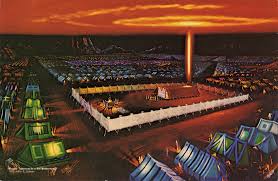 |
| And the Word became flesh and dwelt (skenoo, tabernacled) among us, and we beheld His glory, the glory as of the only begotten of the Father, full of grace and truth. (John 1:14) |
Now when one of those who sat at the table with Him heard these things, he said to Him, “Blessed is he who shall eat bread in the kingdom of God!” Then He said to him, “A certain man gave a great supper and invited many, “and sent his servant at supper time to say to those who were invited, ‘Come, for all things are now ready.’ “But they all with one accord began to make excuses. The first said to him, ‘I have bought a piece of ground, and I must go and see it. I ask you to have me excused.’ “And another said, ‘I have bought five yoke of oxen, and I am going to test them. I ask you to have me excused.’ “Still another said, ‘I have married a wife, and therefore I cannot come.’ “So that servant came and reported these things to his master. Then the master of the house, being angry, said to his servant, ‘Go out quickly into the streets and lanes of the city, and bring in here the poor and the maimed and the lame and the blind.’ “And the servant said, ‘Master, it is done as you commanded, and still there is room.’ “Then the master said to the servant, ‘Go out into the highways and hedges, and compel them to come in, that my house may be filled. ‘For I say to you that none of those men who were invited shall taste my supper.’ ”
Now great multitudes went with Him. And He turned and said to them, “If anyone comes to Me and does not hate his father and mother, wife and children, brothers and sisters, yes, and his own life also, he cannot be My disciple. “And whoever does not bear his cross and come after Me cannot be My disciple. “For which of you, intending to build a tower, does not sit down first and count the cost, whether he has enough to finish it—“lest, after he has laid the foundation, and is not able to finish, all who see it begin to mock him, “saying, ‘This man began to build and was not able to finish.’ “Or what king, going to make war against another king, does not sit down first and consider whether he is able with ten thousand to meet him who comes against him with twenty thousand? “Or else, while the other is still a great way off, he sends a delegation and asks conditions of peace. “So likewise, whoever of you does not forsake all that he has cannot be My disciple.
“Salt is good; but if the salt has lost its flavor, how shall it be seasoned? “It is neither fit for the land nor for the dunghill, but men throw it out. He who has ears to hear, let him hear!” (Luke 14:15-35)

![]()
Lambert's Place
Email Lambert Dolphin
Archive for Newsletters
Library Annex (900+ new articles since 2018)
Help Thyself. No Charge.

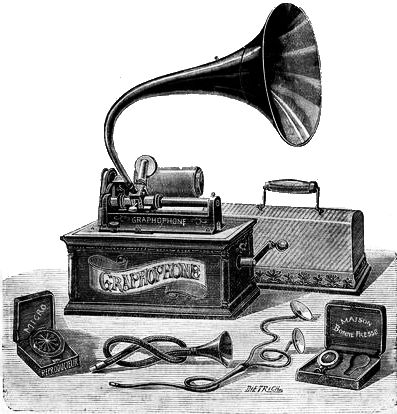

February 15, 2021. November 2, 2022. October 20, 2023